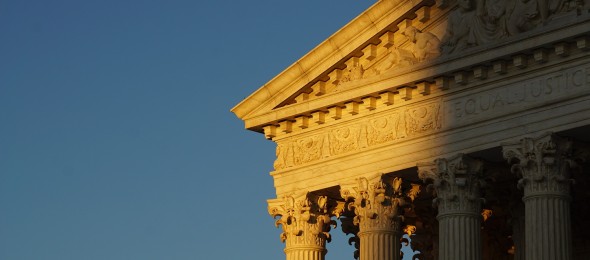Yesterday, the Supreme Court of the United States held a district court must stay its proceedings pending resolution of an interlocutory appeal related to the question of arbitrability of a dispute that was filed pursuant to 9 U. S. C. §16(a). In Coinbase, Inc. v. Bielski, No. 22–105 (June 23, 2023), Abraham Bielski filed a putative class action lawsuit against Coinbase, Inc., a cryptocurrency exchange platform, on behalf of himself and other platform users in the U. S. District Court for the Northern District of California. In response, Coinbase filed a motion to compel arbitration based on the terms of the Coinbase’s User Agreement.
After the district court denied Coinbase’s motion to compel arbitration, the company filed an interlocutory appeal with the U. S. Court of Appeals for the Ninth Circuit. Coinbase also filed a motion to stay all district court proceedings until the interlocutory appeal over the issue of arbitrability was resolved. The Ninth Circuit denied both of Coinbase’s motions and the company filed a petition for certiorari with the U.S. Supreme Court.
In its petition, Coinbase asked the high court to resolve an existing circuit split over whether trial court proceedings must be stayed pending resolution of an interlocutory appeal that was filed over the question of arbitrability.
The question presented is: Does a non-frivolous appeal of the denial of a motion to compel arbitration oust a district court’s jurisdiction to proceed with litigation pending appeal, as the Third, Fourth, Seventh, Tenth, Eleventh and D.C. Circuits have held, or does the district court retain discretion to proceed with litigation while the appeal is pending, as the Second, Fifth, and Ninth Circuits have held?
In a 5-4 opinion, the Supreme Court held district proceedings must be stayed while the question of arbitrability is decided to avoid undermining the arbitration process. According to the court:
The common practice in §16(a) cases, therefore, is for a district court to stay its proceedings while the interlocutory appeal on arbitrability is ongoing. That common practice reflects common sense. Absent an automatic stay of district court proceedings, Congress’s decision in §16(a) to afford a right to an interlocutory appeal would be largely nullified. If the district court could move forward with pre-trial and trial proceedings while the appeal on arbitrability was ongoing, then many of the asserted benefits of arbitration (efficiency, less expense, less intrusive discovery, and the like) would be irretrievably lost—even if the court of appeals later concluded that the case actually had belonged in arbitration all along. Absent a stay, parties also could be forced to settle to avoid the district court proceedings (including discovery and trial) that they contracted to avoid through arbitration. That potential for coercion is especially pronounced in class actions, where the possibility of colossal liability can lead to what Judge Friendly called “blackmail settlements.” H. Friendly, Federal Jurisdiction: A General View 120 (1973).
The majority opinion added the court’s earlier decision in Griggs v. Provident Consumer Discount Co., 459 U. S. 56 (1982) “dictates that the district court must stay its proceedings while the interlocutory appeal on arbitrability is ongoing.”
Ultimately, the nation’s highest court reversed and remanded the Ninth Circuit’s order denying Coinbase’s motion to stay district court proceedings in the arbitration case.
In a lengthy dissent, Justice Jackson disagreed with the majority opinion stating:
This mandatory-general-stay rule for interlocutory arbitrability appeals comes out of nowhere. No statute imposes it. Nor does any decision of this Court. Yet today’s majority invents a new stay rule perpetually favoring one class of litigants—defendants seeking arbitration. Those defendants will now receive a stay even when, according to the usual equitable analysis, there is no good reason for one. And, in reaching this result, the Court concludes for the first time that an interlocutory appeal about one matter (arbitrability) bars the district court from proceeding on another (the merits). That logic has such significant implications for federal litigation that the majority itself shies away from the Pandora’s box it may have opened.
You may read the entire opinion on the Supreme Court’s website.
Photo by: Ian Hutchinson on Unsplash














